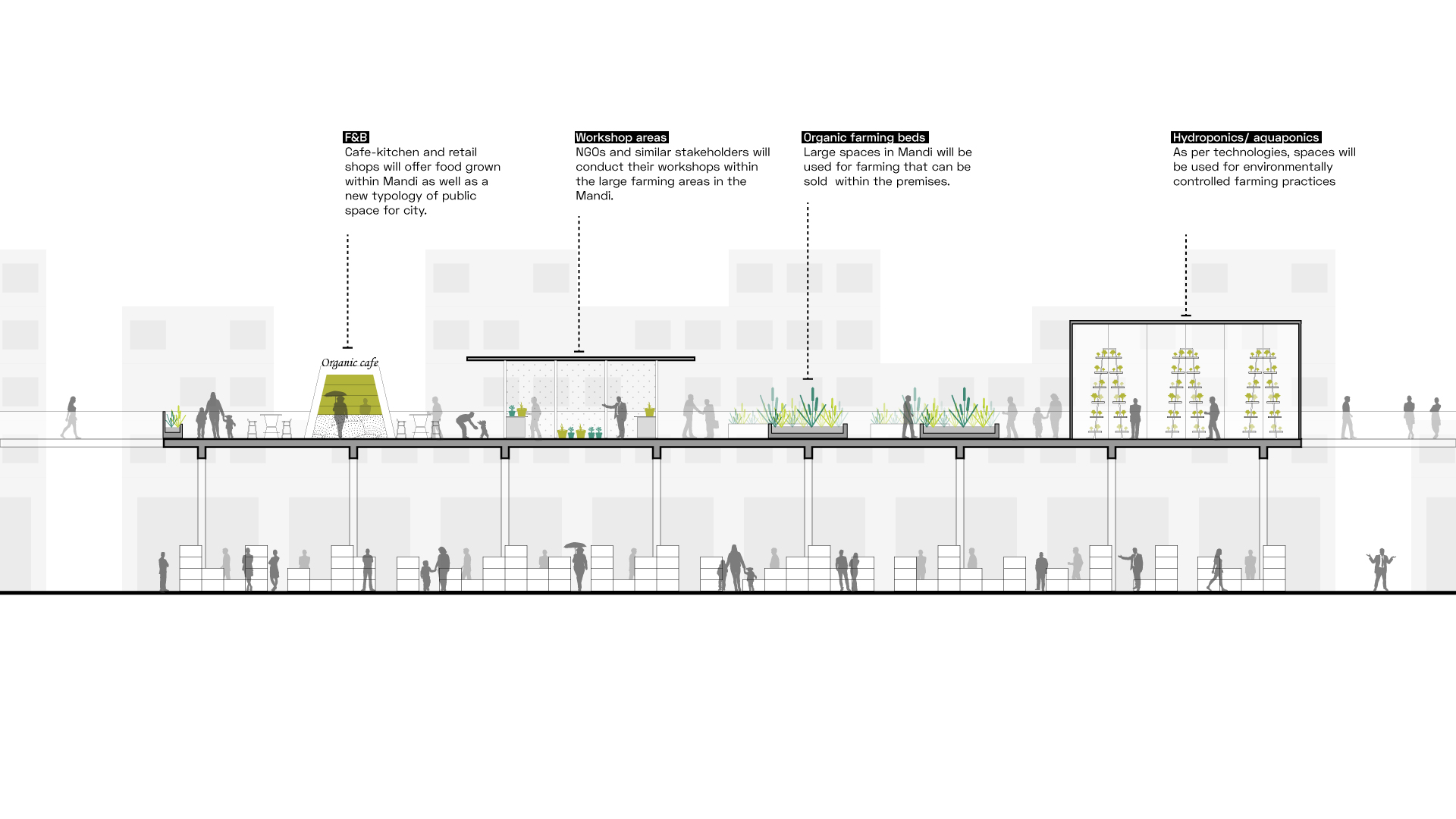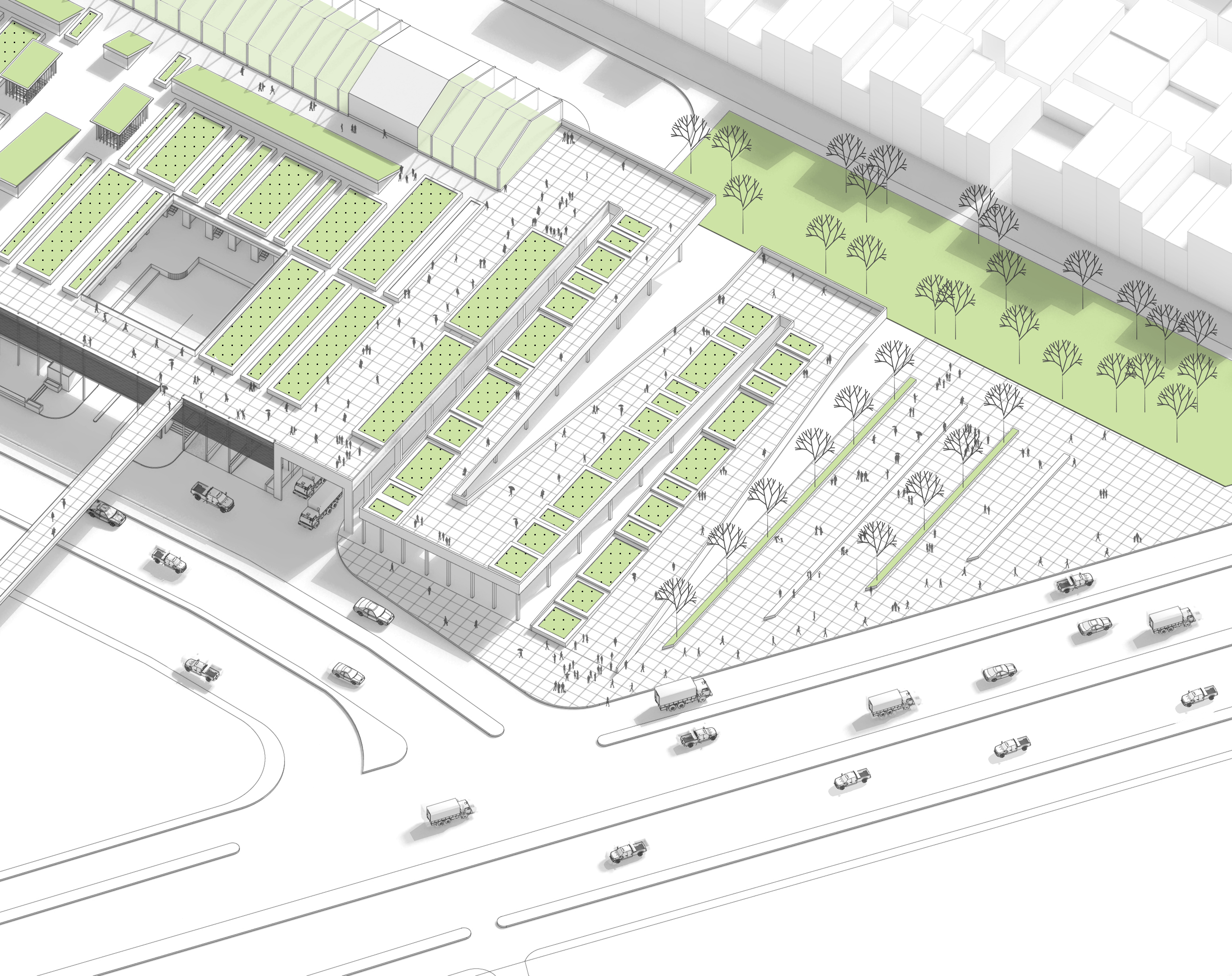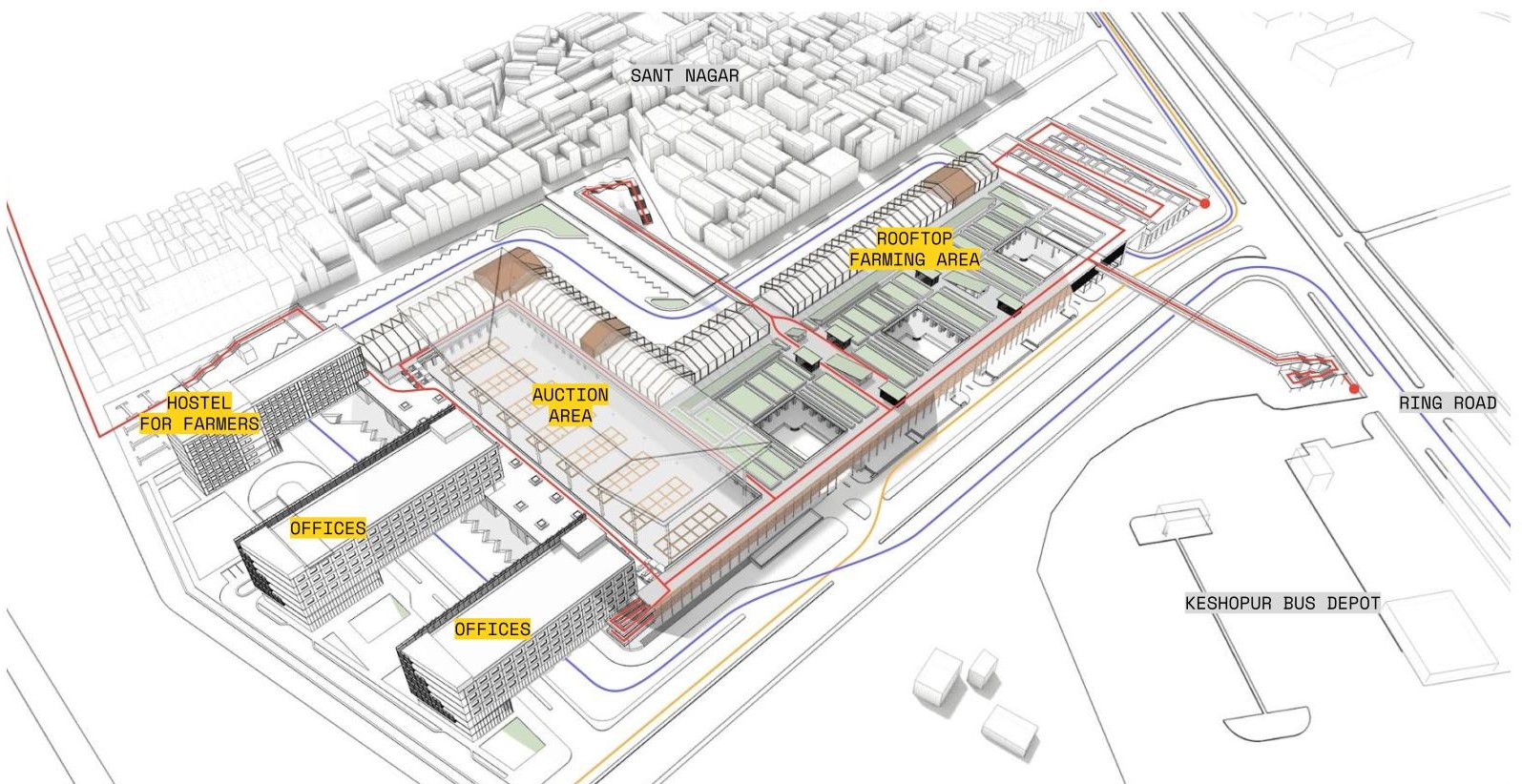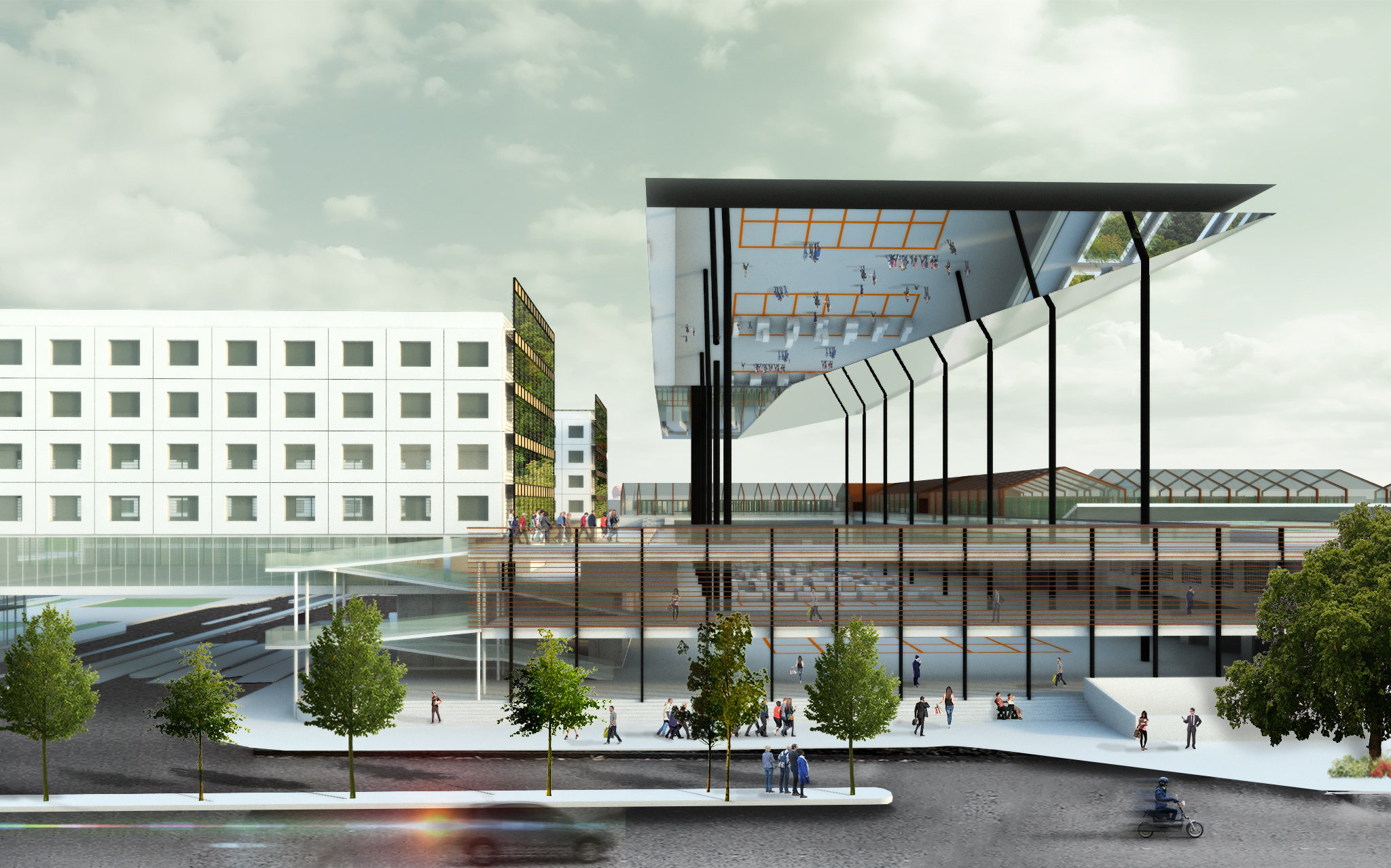Reinventing Delhi’s vegetable depots
Most of urban food requirements is catered to by rural farming systems. Food supply is a mammoth engine which is energy intensive, wasteful and opaque for consumers and farmers alike.
We envision how vegetable and fruit depots in the city (or mandis) could play a role in enabling collaborations and catalysing a city-wide locavorian culture.
We envision how vegetable and fruit depots in the city (or mandis) could play a role in enabling collaborations and catalysing a city-wide locavorian culture.
Status
Concept
Location
Delhi
Year
2018
Concept
Location
Delhi
Year
2018

Challenge
Who is to grow our food?
Who is to grow our food?
In recent years, organisations and businesses have emerged aiming to encourage and engage people in local food production and urban farming. Yet, these efforts are yet to translate into a mass movement.
The population of Delhi is expected to cross 35 million and food demand is expected to rise two-folds. In the context of emerging food challenges, our current food system has many shortcomings.
The population of Delhi is expected to cross 35 million and food demand is expected to rise two-folds. In the context of emerging food challenges, our current food system has many shortcomings.
Loss of cropland
It takes 0.25 ha to feed each person. By 2050, the amount of avaiable cropland is projected to drop to less than 0.1 ha.
Food waste
From growing in fields to reaching our table, around 40% food gets wasted due to different factors.
It takes 0.25 ha to feed each person. By 2050, the amount of avaiable cropland is projected to drop to less than 0.1 ha.
Food waste
From growing in fields to reaching our table, around 40% food gets wasted due to different factors.
Consumption paradox
It takes 10 calories of fossil fuel energy to produce a single calorie of modern supermarket food
Degrading nutrition content
Use of chemical and pesticides lead to great loss of neccessary nutrition value in food grown in croplands
It takes 10 calories of fossil fuel energy to produce a single calorie of modern supermarket food
Degrading nutrition content
Use of chemical and pesticides lead to great loss of neccessary nutrition value in food grown in croplands
Ecosystem
As many major insitutions progressively research and work towards better food production practices and technologies, various organisations and businesses have emerged — encouraging and engaging people in local food production.
Food wholesale markets (Mandi) within cities have great potential of playing a pivotal role in urban farming ecosystem because of its proximities with people & communities and availability of business resources.
Where do we stand in local food production?
As many major insitutions progressively research and work towards better food production practices and technologies, various organisations and businesses have emerged — encouraging and engaging people in local food production.
Food wholesale markets (Mandi) within cities have great potential of playing a pivotal role in urban farming ecosystem because of its proximities with people & communities and availability of business resources.
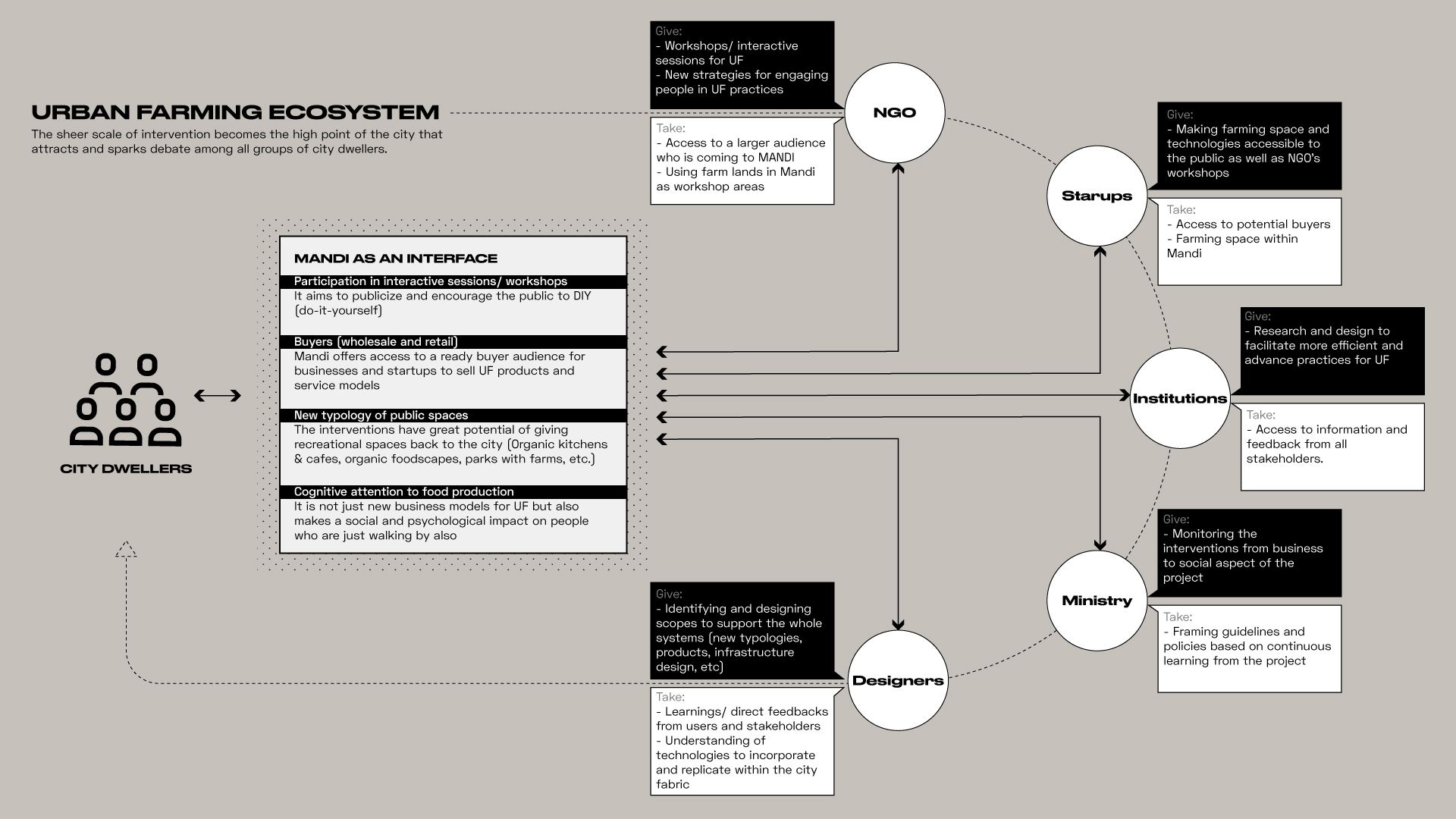
Mandi as an
interface
As the interface between the consumers and producer supply chain, vegetable markets in the city form an ideal space to start new overlaps between agriculture and urban life.
Next generation of mandis
As the interface between the consumers and producer supply chain, vegetable markets in the city form an ideal space to start new overlaps between agriculture and urban life.

